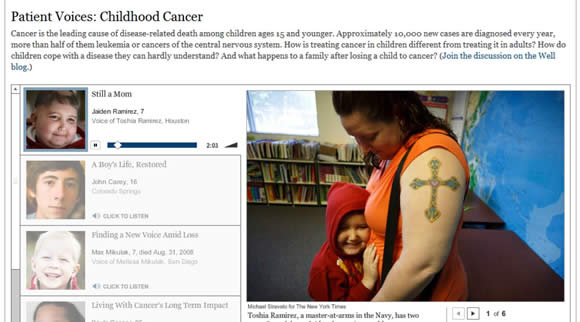These differences make cancer a life threatening disease.
Pediatric Oncology concerns cancers in children between birth (sometimes cancers like neuroblastoma can even be diagnosed prenatally) and up to the age of 18 years or so.
Oncology involves studying many aspects of different cancers - their incidence, causes, diagnosis, spread and treatment. More recently there has been increased awareness of the importance of patient supportive care, ethical considerations and patient advocacy.
Also as the effectiveness of therapy has improved, it has become obvious that cancer cure comes at a price. Survivors of childhood cancer are at significantly increased risk for long term health and psychosocial problems.
This basic oncology module has been developed by oncologists at the BC Children's Hospital and the BC Cancer Agency for medical students. It is designed to complement the undergraduate curriculum and to spark your interest in this important subject.
Link to New York Times multimedia presentation:
Link to words of hope art project:
Our website is a non-profit site. We appreciate your comments and feedback, please contact us at:




